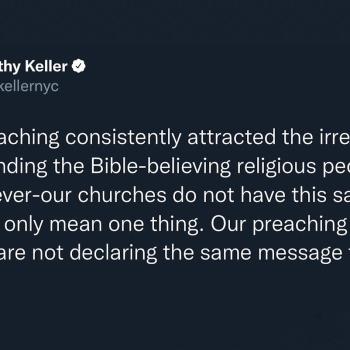It shouldn’t come as a shocker to anyone who is familiar with Oprah Winfrey, or the entertainment industry’s secularization – but the speech Oprah gave upon the reception of her award is abysmal in many ways. No, I’m not talking about how she highlights her experience as a child when substantive ethnocentrism was abundant. Nor am I speaking toward her rightly calling out the disgusting nature of sexual abuse in an industry rife with little boys pretending to be men. What I am speaking to is the assumed narrative within this framework that inevitably capitulates to moral relativism when carried to its logical end.
We can dissect these two ideas within our culture today and find that both are not monolithic issues. More clearly, rather than taking speeches like this at face value and assuming the person is operating under the set of definitions and presuppositions you are – you ought to understand there is a clear ideology under-girding the whole proposition. Oprah even mentions this in her speech. The whole of her speech is set within the ideal that “your truth is the most powerful tool we all have…It’s one that transcends any culture, geography, race, religion, politics, or workplace.”
Now, anyone listening to the speech itself will see this within the context of sexual abuse. It is especially hard to avoid these implications given the veritable smorgasbord of sleazy men brought forth and paraded about in order to placate the desire for justice. The untold stories of women who have been sexually abused defines “your truth” – and this is the thing which will cause all injustice to come toppling down. In other words, your truth is the savior.
It would be problematic enough if it stopped here, yet for Oprah, the confines are limited even further. The truth, in Oprah’s speech at least, is confined to the experience of women who have suffered at the hands of powerful men, and the men who listen. But here’s the rub: what about those cases where women are donning the #MeToo, yet their experience is not true? What about the look they got from a man who silently passed by on the street and this too became a #MeToo moment simply because it was unwanted? What about due process – is it equally as important in allegations of sexual abuse? We might even dare to ask about men who have been sexually abused? Or, maybe closer to the home turf, did Oprah speak out against any of the men she witnessed playing these power-plays?
Perhaps the most important question though is this: why does Oprah perpetuate the lie that truth itself is limited to one’s experience if she’s on a conquest for absolute truth?
The reality is that women like Oprah Winfrey have no legitimate desire for the truth. There is a reason why she abandoned the definite article and used the personal pronoun instead. It clearly indicates where her priorities lay, and given the applause of her constituents and the broader culture, theirs too. Now, this has been the case for years at this point, but I wish to simply make a case to Christians to understand at least two things from this, beyond Oprah being a person of influence in your life.
There is No Such Thing as Neutrality
I feel this should be obvious, but for many it seems that this is not something regarded as truth. However, whenever we deal with people who have a worldview, which is everyone, that worldview will be reflected in various mediums. What is more than this is the fact these worldviews are being imposed upon those who share in this medium. It is inescapable – yet it is also regarded as a highly effective means to disseminate this worldview and change the minds of the less discerning.
In some cases, this is done in a good way, however, the majority of worldview dissemination is predominately wicked, as it supplants truth by subtly exchanging it for a lie. Think of it within the context of movies, television, or any other form of media. Fictional stories carry a plotline with an intended agenda by their creator; no movie you or anyone else sees is without that agenda.
Whereas in many cases, the extent is behavioral (i.e. you shouldn’t hit other people because hitting is wrong), the majority of cases are ideological. You cannot define a moral precept without exposing the underlying ideological principle (i.e. hitting people is wrong because it is unkind). It is not simply a tool to change behavior, but change the mind, so that wrongful behavior is modified on the basis of reason rather than simple affirmation of the “positive” behavior they wish to impart. This is done in several ways, but the most common has been repeated exposure to the concept along with affirmation of said concept, in likeness to an already established moral norm.
Take homosexuality for example. While there have been multiple attempts at normalizing homosexuality – with the purpose of calling it good, none have been as successful as entertainment. The reason is simple: when we are being entertained, we are far less likely to scrutinize what we are being entertained by. Over the process of years, the boundaries and ethics were pushed further and further with the specific goal of complete integration into the ethical system of the viewers.
It is something as subtle and seemingly sweet as showing a character in mortal peril, saying how he desperately wishes to be reunited with his spouse and child. The lengthy scene climaxes as he almost plummets to his death – yet by a miraculous turn of events, he evades death and defeats the villain. Fade to black. Cut to the next scene where we see other heroes running with a smile upon their faces to their wife or husband, and then the camera pans to the character who miraculously survived. Time slows as his face slowly turns to glee. The camera zooms out and shows the embrace of two men and their adopted child.
What happens here is a manipulation of feelings rather than the intellect. It is the classic bait and switch. A traditional relationship was shown first, then the progressive relationship – all with the intent to tug at the heartstrings. Feelings are far easier to persuade and this method carries with it the ability to rouse an otherwise placated crowd. When you frame the conversation in terms of the feeling of love rather than the definition of love within an ethical system bound in terms of good and evil, you can overcome that ethical system if given enough time and exposure. While there are obviously competing worldviews, it is without question that the entertainment industry is predominantly liberal in every sense of that word. If you think that ideology is absent from your entertainment, you are either painfully naïve or willingly obtuse.
The Nature of Truth Doesn’t Depend on Personal Experience
Truth by nature of its intrinsic quality is true, regardless of one’s hypocrisy, situation, or experience. Truth is not fluid, but rather stative and unchanging. It is not your truth or my truth; it is the truth. The sad thing about all of this is that by seeking to limit truth to one’s experience, it becomes a never-ending game of manipulation. It never moves from the emotional to the logical, meaning it camps objectivity on the basis of feelings rather than facts. We might better understand a person’s story through their experience, but one’s story is not the litmus test for truth, how the world operates, nor the beliefs of people within that world.
Secondly, it denies any chance that truth is a transcendent principle, being handed down to mankind through the very revelation of the Scriptures. Ultimately, I am not in the least bit surprised by this – yet it needs to be said nonetheless simply because Oprah (and many in this nation) claim a sort of spirituality. What this simply reveals is that their notion of what makes one a spiritual being is rooted in a denial of the things that are spiritual.
It is also a denial of rudimentary philosophical proposals grounded within a set of ontological ideals, meaning it is a denial of truth as a quality flowing from the personhood of God to mankind. It sets things without relation to their Creator, ultimately exchanging that intrinsic relation bound in bearing the Imago Dei for a relation reflective of one’s self. In other words, they’ve simply supplanted the place of God for themselves, as they are seeking to affirm that which is right in their own eyes. Even though Oprah roots her proposal in what she calls absolute truth, it is the absolute truth of those who claim to have been abused, and to those who listen.
This is the same exact thing that is done in virtually every sphere of liberal ethics, from abortion, to homosexuality, to race-relations, and more. It is the accuser who experiences the perceived problem who leverages authority and veracity, rather than the truth itself. Those who listen are able to join in – inasmuch as they keep silent, save when they must applaud and affirm. Those who do not listen are simple-minded contrarians who don’t care about people, nor their feelings.
All this does, and we’ve seen it in virtually every major, polarizing discussion as of late, is place the emphasis upon the individual. This is why a white man can’t speak to issue of ethnocentrism, unless he agrees with the predominant view of the day that Trump voters are a monolithic breed of beasts, white people are, as a class of people, guilty for the crimes of their ancestors, and white people are intrinsically racist. Yet this is also why a man cannot speak to the evils of abortion. In reality, the dominating proposition is that it takes victimhood as a separate class and endows them to wield ultimate authority.
In effect, people have taken what they believed to be a system of oppression, flipped it upon its head to free the oppressed, with the sole goal of then oppressing the oppressors. It is akin to the reversal of a caste system by implementing a new caste system wherein the top dogs are subjected to the punishments they inflicted upon those they deemed lower than them. Their time has come.
Conclusion
Listen, I have no issues whatsoever with sexual abusers getting their “just-desserts” because of what they’ve done. I have no issues whatsoever with ethnocentric individuals or groups being called to the carpet. Both of these types of people are fundamentally wicked and perverse, and they do legitimate damage. What I have a problem with is the solution to these things – for if we ground things in an epistemology of victim-hood rather than a set of ontological truths from the character and being of God, we are simply going to perpetuate the lie.
Anyone can claim victim-hood. At some point in the history of every people group, there has been oppression and mistreatment. I say this not to diminish hardship of any individual currently, but to simply express the reality that is indicative to all mankind: sin is abundantly present and the solution is not found within the power of your truth, but the truth. Perhaps the most damning proposition of following your truth is that for men like Weinstein, et al. – they were following their truth.
In seeking to be profound, all Oprah does is repeat the mantra of a society that rejects any foundation to truth, and thereby ethics, save a foundation wherein the past is jettisoned as antiquated and simple. There is nothing here “…that transcends any culture, geography, race, religion, politics, or workplace.” The thing that is abundantly present is a progressive system of values that spurns not only the legitimate metaphysical relationship humans have to God, but even the conception of humanity rooted in human history.
Since this is the case, therefore, there are two categories we deal with: the truth or the lie. Notice I am not using the personal pronoun, but the definite article. The reason is simple, but I want you to pay particular attention to it. Truth is no respecter of persons and simply doesn’t care if I believe it to be true or not. It is not dependent upon my conception of it, nor will it be maligned in its quality if I seek to defame it, reject it, or twist it. Instead, the result of such action is not that truth is changed in some capacity, but rather, the hearer is presented with the opportunity to believe truth as defined on its own terms, or reject it and believe the lie as they wish.
Yet the more profound problem in this is found within the concept that your truth can ever save you, whether from the evils of man, or on a more profound level, the wrath of God. It can’t. It shan’t. Truth is not subject to your experience, but rather, is bound within the nature and being of the triune God of Scripture, who reveals it to us through the person of His Son, Jesus Christ. It is the truth which shall set the captive free. We mustn’t be so bold as to presume subjective truth has any legitimate power. That’s precisely why we’ve gotten into the present mess we’re in.













